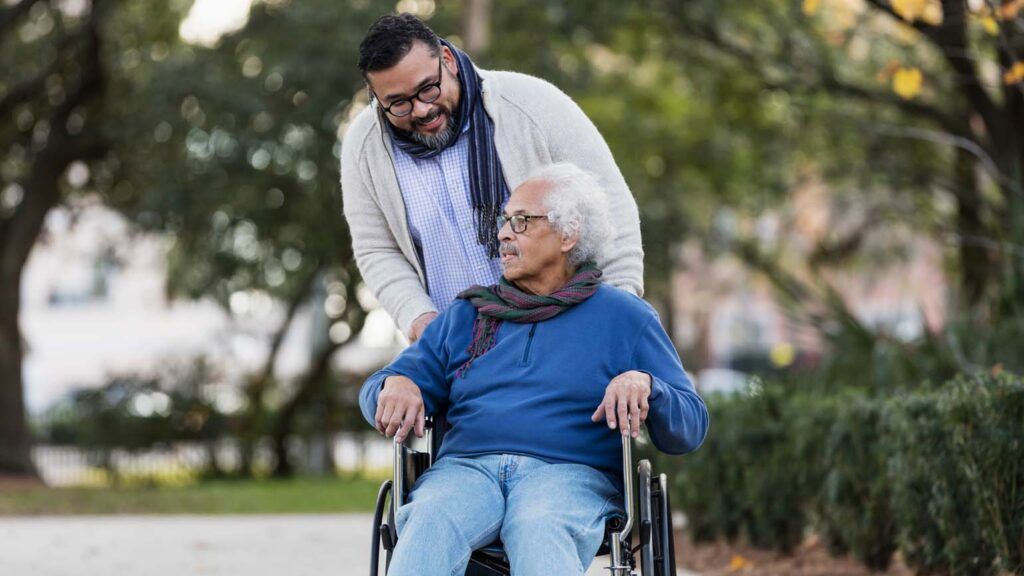Cathy Franz, LSW, is a Care Consultant for WeCare…Because You Do at Benjamin Rose Institute on Aging
When my mom began to mix up words, names and times, my inclination was to point out her errors in order to clear them up. But it became apparent that not only did this do her no good because my corrections didn’t take hold, I was also upsetting her. I started to feel like her interrogator and she reacted with fear, anger and sadness. Although she eventually received a dementia diagnosis, I still found it tough to accept that she couldn’t retain new information and wasn’t purposely being contrary. I wondered what on earth I could do to improve our communication.
My mom’s disease changes the way the brain processes information. The nerves in the brain fail to make connections, resulting in changes both in expression and understanding. This can affect an individual’s ability to recall words, use the correct words and process conversations. Depending on the type of dementia someone has, communication changes can be one of the initial indicators that loved ones see.
Whether it’s word loss or substitution, repetition or inability to follow a train of thought, communication impediments can be frustrating and mystifying both for those who have dementia and for anyone who attempts to communicate with them. Due to the manner in which dementia affects language, people who have the disease cannot correct how they express themselves. So it’s up to family members, friends and caregivers to ease the process and make it more effective for all involved.
You may want to try these tips for better communication between you and your loved one:
- Say your name when you enter a room: “Hello Dad, it’s Mary.”
- Take things slow, breathe deeply and exercise patience.
- If possible, get on a level where you can make eye contact as you talk.
- Place a steadying hand on his or her shoulder or forearm.
- Allow your loved one time to speak and focus on the emotions beneath what’s being said.
- Provide reassurance and demonstrate respect.
- Don’t make things complicated and don’t pose more than one question at once.
- Pay attention to body language and remain in a relaxed state.
- Express yourself with visual cues, rather than words alone.
- Avoid arguments, criticisms or corrections.
- If things get tense, take a breather and redirect to a snack or beverage.
- Leave the room and then make another attempt.
When a loved one has difficulty communicating because of dementia, it can be a challenge for everyone in his or her close circle. Although the person who has dementia does not have the ability to change, family members, friends and caregivers do. It can take patience, intention and a bit of planning, but it can be done. By taking these practical steps, it’s possible to greatly improve your interactions and enjoy a much more rewarding caregiving journey for all involved. To find additional tips on how to communicate effectively with a loved one who has dementia, consider signing up for a session with Dementia Friends, a movement centered on dementia education helping people in the community understand and support those affected by dementia.






